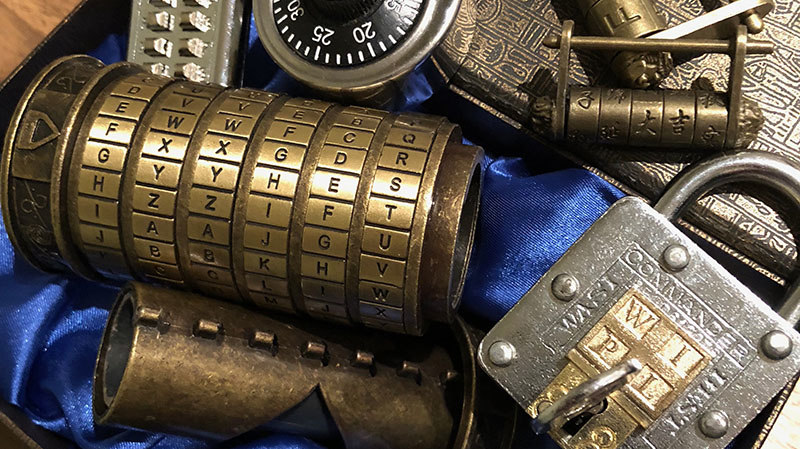
Padlocks, RFID chips, and secret briefcases: an interview with a geocaching maniac
Gelderland is an emerging region when it comes to cache creation; gadget caches, puzzle boxes, large caches, you name it! One of the prominent geocache hiders from that region is IronManiacGLD. His hides range from padlocked birdhouses and RFID chips in puzzle boxes, to secret briefcases straight from a James Bond movie.
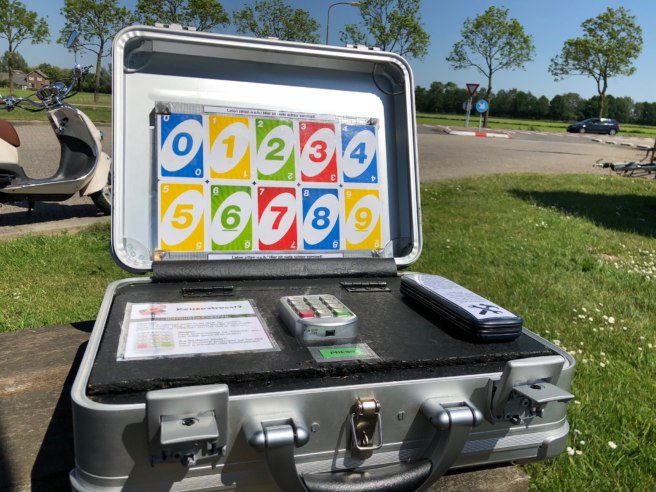
Many of these caches have a high percentage of Favorite points—not bad for a cacher who just started in 2017. These caches all have great attention to detail and a cerebral approach to them. IronManiacGLD is an expert in human behavior and specializes in lie detection. He says, one of the things that inspire him most are finding intricate field puzzles and thinking about how the cache owners thought through the process.
While we all aren’t experts in human behavior, there is one important thing to remember: everyone is capable of creating awe-inspiring geocaches, you just have to harness your creativity and not be afraid to ask for help!
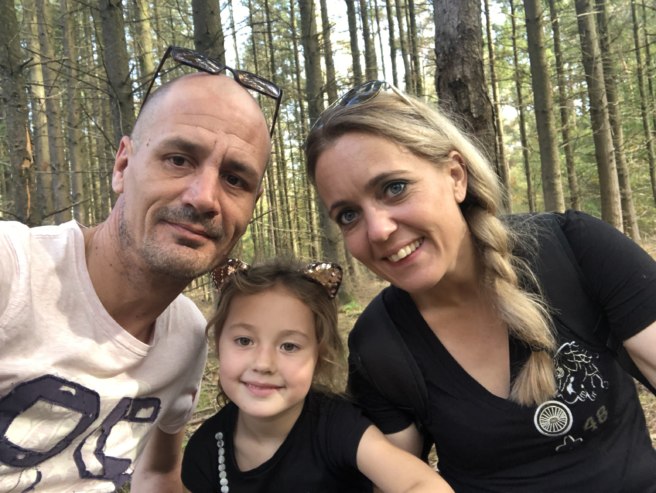
Geocaching HQ: What’s your background outside of geocaching?
I work as a sales trainer, an expert in human behavior and specialist in lie detection. I supervise and train people to better understand themselves and others. The human brain is extremely attractive to me—especially how someone makes decisions and makes choices. I therefore try to apply this knowledge to building and hiding maniac caches.
Geocaching HQ: How and when did you hear about geocaching?
It started a little more than a year ago. On television I saw a family in the forest searching for treasures. They really found something! A real container with goodies! First of all, I was surprised that something was actually hidden. It directly fascinated me. With the free app, it is now possible for everyone to immediately start searching for geocaches, and that is also how I started searching in my neighborhood. I was even more surprised to find out that dozens of geocaches were hidden in my immediate surroundings. Locations that I passed several times a day.
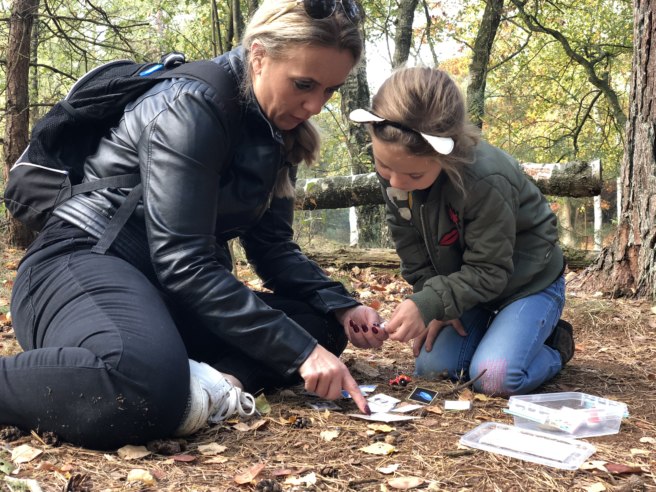
Geocaching HQ: Which cache got you hooked?
It was not a specific cache that convinced me. It was mainly the versatility of geocaching. The many different facets of geocaching intrigued me almost immediately. I came to locations where I otherwise would never have come. Even in my own immediate environment, I discovered beautiful locations as well as easy to find geocaches to very difficult (sneaky) hidden geocaches.
But, there was one geocache that urged me to build and hide geocaches myself. That was the first geocache with a field puzzle: a bicycle with a chest. I had to remove the saddle to get to a key, then with the key I could open a chest. In that chest there was a locked geocache with hundreds of keys. That was challenge that gave me a lot of fun. Mainly the different steps to take gave me several euphoric moments and a wonderful feeling. My creative brain immediately started to run at full speed. After several weeks I hid my first maniac cache: ‘Get Twisted‘ as a result.
Geocaching HQ: What is the story behind your username?
That choice was made quickly by me. For years I have been nicknamed ‘Ironman’ because of my surname: IJzermans. In Dutch, ‘IJzer’ means Iron and because of my creative brain nerve, I decided to change ‘Man’ to ‘Maniac.’ The addition GLD is linked to the region where I live and where my caches can be found.
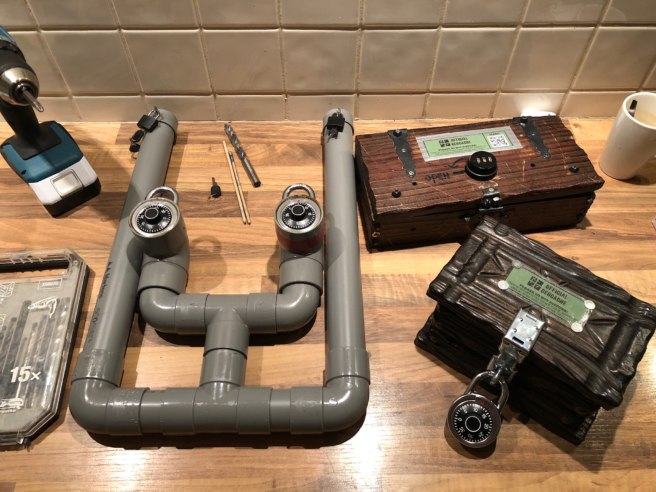
Geocaching HQ: What is your favorite cache(s) you’ve found?
I have an absolute preference for finding challenging field puzzles and creative geocaches. Understanding the thoughts of the CO and how they want you to open a cache is intriguing for me. I just recently found a very creative and challenging cache. A combination of good woodworking and fantastically elaborated steps to get to the logbook. I was really impressed by the creativity of the CO. That is always very inspiring and stimulating for me when I want to come up with a new maniac cache.
Geocaching HQ: What keeps you engaged with the game?
I have a very high sense of responsibility for everything I do, including for building and hiding geocaches. I want to offer everyone a nice experience so that requires thorough maintenance. A lost geocache or a full logbook is usually replaced by me within one day. Sometimes even within a few hours. But I am also very critical about already placed geocaches or locations. I will always see if I can improve the geocache, the way of hiding, or improve the location for the ultimate experience. In addition, I always try to listen to feedback from geocachers because I want to keep them satisfied.
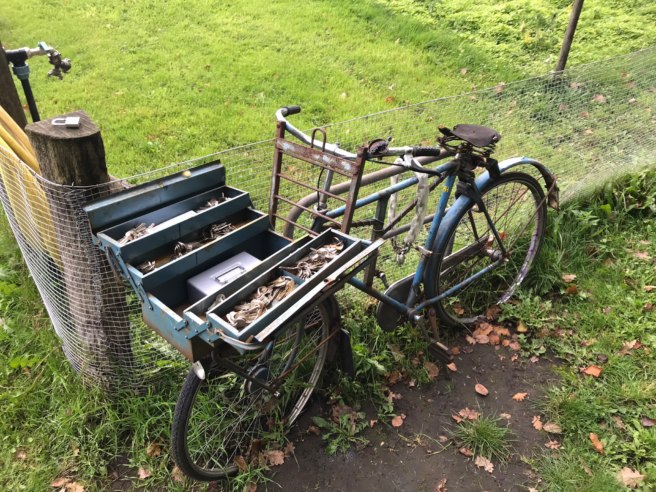
Geocaching HQ: For you, what makes a quality cache?
A good geocache must, in my opinion, meet a number of conditions:
- In any case, permission must always be arranged with the legal landowner. I always try to involve the landowner with my idea. And that often results in an even better and more beautiful geocache or location. In addition, I also inform any local residents in the vicinity of the hiding place.
- A geocache must be solidly constructed and installed, and sensitive to the (Dutch) weather. Rain and moisture are mostly the biggest enemies of a geocache (next to muggles).
- Every geocache deserves a good listing with a clear layout. With information about the area and a clear hint. I think it is important to avoid making other search for too long (muggles) and to minimize damage to the environment of the hiding place.
- The hiding place also requires extra attention. Is the location safe for geocachers? And is the route to get to the hiding place safe enough?
Geocaching HQ: What’s the best approach to creating a geocache?
Embrace your enthusiasm! The first questions you should ask yourself are, “Why do I want to hide a geocache? What is the reason of hiding a geocache? Is it because of the beautiful area, the fantastic walk through the woods or a creative and beautiful build geocache?”
Depending on the answers, you then have to think about the hiding place. You also take into account the seasons in the year. A good hiding place in the summer, for example, may suddenly be a wrong choice in the winter, or vice versa.
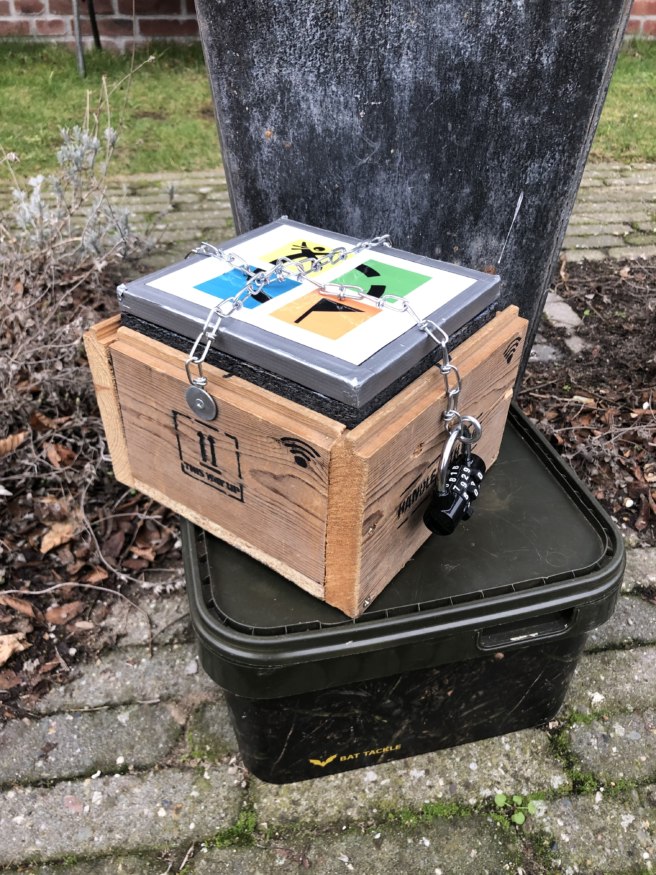
Geocaching HQ: If someone reading this was looking for inspiration, what words of advice would you give them?
It is obviously important that you know and understand the rules and conditions. Help from an experienced CO is therefore absolutely recommended, and discuss your idea with a reviewer so that you comply with those rules and conditions. Perhaps the most important thing is that you have the geocache, coordinates and listing checked and tested by other geocachers. Nothing is more annoying than, for example, if someone is searching at the wrong location (coordinates) or having no clue how to open a cache.
Geocaching HQ: You have a number of complicated and intricate caches. Do you find it difficult to provide maintenance on them?
All my caches are in the neighborhood or on the route. If I have to, I am at a cache of mine within a few minutes. Replacing full logbooks is currently taking the most time. But I do not mind doing that at all. Because I regularly visit my geocaches so that I can immediately assess whether maintenance is needed. An additional advantage is that I often meet geocachers along the way to chat with. My intricate maniac caches sometimes have a problem: that it was not always clear what geocachers have to do and so they try everything to open the cache. Crawling into the head of a geocacher and having caches tested has resulted in less maintenance in the field. A clear listing and hint also contribute to less maintenance and more fun for the geocachers.
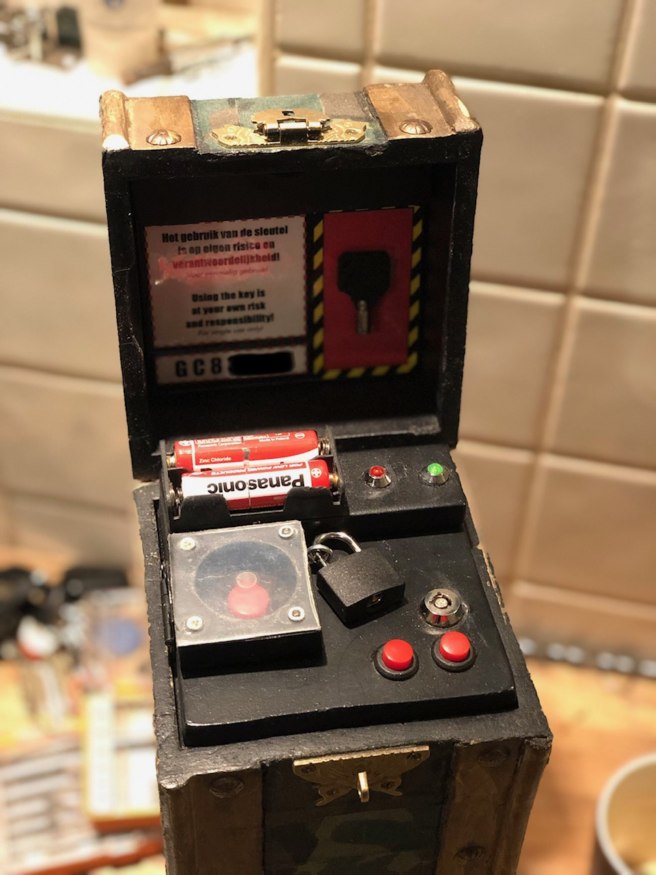
Geocaching HQ: Have you ever had an idea that you thought was impossible?
“I have never tried that before, so I think I should definitely be able to do that!” is a well- known statement by Pippi Longstocking and I believe in that too. In principle everything is possible. I’m actually not very skilled at woodworking or anything like that. I just start building and step by step I realize my idea into a maniac cache. I only need a little more time than a real carpenter. For example, it can happen I drilled a hole to realize seconds later that the drilled hole is not logical or practical at all. But finally, I will create the cache I had in mind.
What ideas do you have for a creative geocache? Have you been on the edge waiting for the right moment? Perhaps it’s now! Share your ideas in the comments below.




